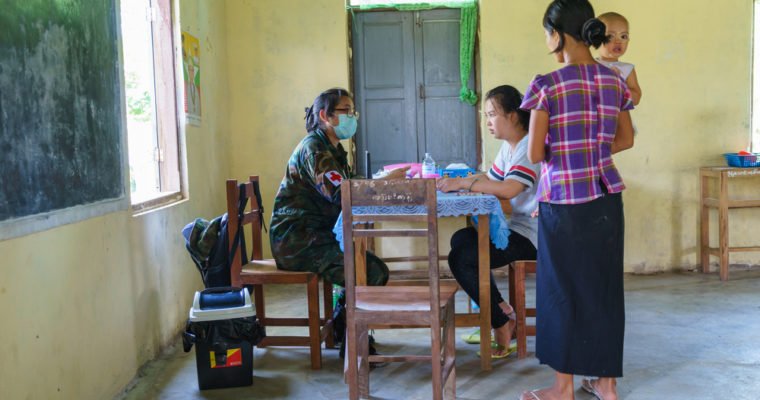Dangers of poor quality health care revealed ‘in all countries’: WHO report


The inadequate clinical practice was also “common” in private and public clinics in several low- and middle-income countries, the study found, with some demonstrating diagnostic accuracy as low as 34 per cent | Image: CCN
In a new report on the subject, the World Health Organization (WHO) and partners cited problems with delivering quality health care across all Member States. The finding is important because, although nations have committed to providing universal health coverage by 2030, the outcome “would still be poor” without the delivery of effective care, WHO says.
“Inaccurate diagnosis, medication errors, inappropriate or unnecessary treatment, inadequate or unsafe clinical facilities or practices — or providers who lack adequate training and expertise — prevail in all countries,” the agency said in a statement.
The challenge is greatest in low- and middle-income countries, where 10 per cent of hospital patients acquire an infection during the course of their stay, compared to 7 per cent elsewhere.
In some poorer nations, moreover, clinical guidelines are followed in less than 50 per cent of cases, resulting in “low-quality antenatal and childcare”, as well as “deficient” family planning, according to the report by WHO, the World Bank and the Organization for Economic Cooperation and Development (OECD).
The inadequate clinical practice was also “common” in private and public clinics in several low- and middle-income countries, the study found, with some demonstrating diagnostic accuracy as low as 34 per cent.
Ensuring quality health care for everyone is essential, it says, primarily because it prevents suffering, but also since it helps to boost economic productivity.
Furthermore, failing to treat sick people results in increased financial pressure on families and health systems which amounts to trillions of dollars each year, the report notes.
Highlighting the dangers of ineffective health coverage when faced with a public health emergency, the report notes that in Liberia, inadequacies there allowed the 2014 Ebola epidemic “to proliferate rapidly”.
It found that the virus exposed “largely absent” infection prevention and control where it was most needed, along with several “persistent” systemic constraints.
These included a lack of skilled professionals in communities, as well as an absence of financing mechanisms, distribution networks and information procedures.
Following the outbreak, an investment plan was put in place to help the West African nation’s ability to tackle future health emergencies, involving the provision of essential services and improving community confidence in health systems.
Underscoring the fact that the problem crosses all economic boundaries, the report found that richer countries had problems too, with breast-screening rates as low as 19 per cent and influenza vaccination rates below 30 per cent, in 35 nations.
Findings from high-income countries also indicated that 1 in 10 patients is harmed during medical treatment and that around 15 per cent of hospital expenditure can be put down to mistakes in care or having to treat the patient infection.
Despite the challenges, the report noted some progress in improving the quality of care, for example in survival rates for cancer and cardiovascular disease.
In an appeal to Governments to promote stronger national health-care quality policies, the three co-authors of the report emphasized their rejection of the perception that quality health care is a “luxury that only rich countries can afford”.
Finally, noting that technological innovation already “plays a key role” in offering ways to expand high-quality health-care services rapidly and affordable, the report also finds that “many” low- and middle-income countries have developed successful strategies to improve the quality of health coverage, but all that is missing is a global platform to share this knowledge.
Source: UN News Shraddha The Kootneeti Un Affairs Team



















